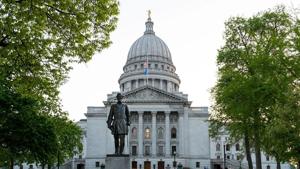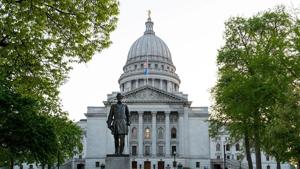(The Center Square) – Wisconsin’s Republican Assembly leaders say they will begin impeachment proceedings if Milwaukee County Judge Hannah Dugan does not resign from her post immediately following a felony obstruction conviction Thursday evening.
Dugan was found guilty of obstructing as Immigration and Customs Enforcement officers were attempting to arrest a defendant in her court outside of the courtroom.
Assembly Speaker Robin Vos, R-Rochester, and Assembly Majority Leader Tyler August, R-Walworth, sent a statement Friday noting that the last Wisconsin judge was impeached in 1853 but that the Assembly would begin impeachment proceedings if Dugan doesn’t resign.
Dugan’s legal team indicated Thursday that she would appeal the jury’s decision.
“Under a 1976 Attorney General Opinion, Democrat Bronson La Follette stated that when a State Senator was convicted of a felony, a vacancy was created, and the Senator ‘was effectually divested of any right or title to the office. His status with reference to the office was fixed at the time of his conviction,’ the leaders wrote. “Such is the case here, and Judge Dugan must recognize that the law requires her resignation.
“Wisconsinites deserve to know their judiciary is impartial and that justice is blind. Judge Hannah Dugan is neither, and her privilege of serving the people of Wisconsin has come to an end.”
The jury found Dugan not guilty of a misdemeanor charge of concealing related to defendant Eduardo Flores-Ruiz, who was later arrested on the street outside the courthouse and has since been deported.
The obstruction charge could lead to up to five years in prison.
The Assembly leaders cited the Wisconsin constitution, which says “‘[n]o person convicted of a felony, in any court within the United States, no person convicted in federal court of a crime designated, at the time of commission, under federal law as a misdemeanor involving a violation of public trust and no person convicted, in a court of a state, of a crime designated, at the time of commission, under the law of the state as a misdemeanor involving a violation of public trust shall be eligible to any office of trust, profit or honor in this state unless pardoned of the conviction.”
“While we are disappointed in today’s outcome, the failure of the prosecution to secure convictions on both counts demonstrates the opportunity we have to clear Judge Dugan’s name and show she did nothing wrong in the matter,” her legal team said after the verdict was read. “We have planned for this potential outcome and our defense of Judge Dugan is just beginning.”
















